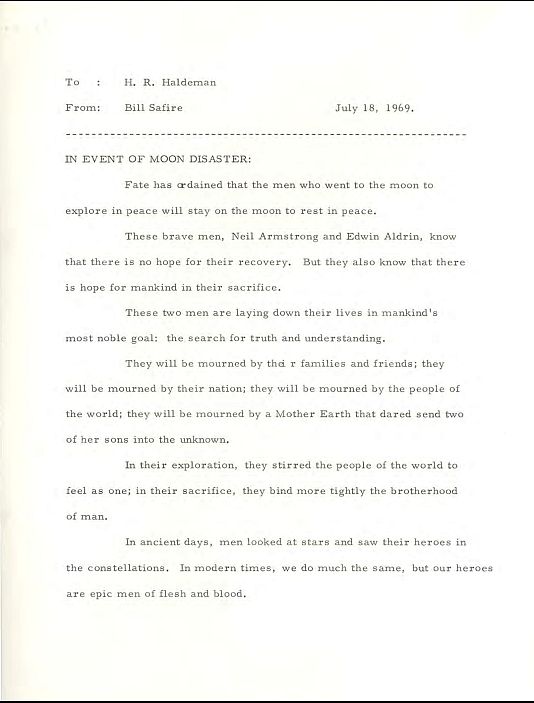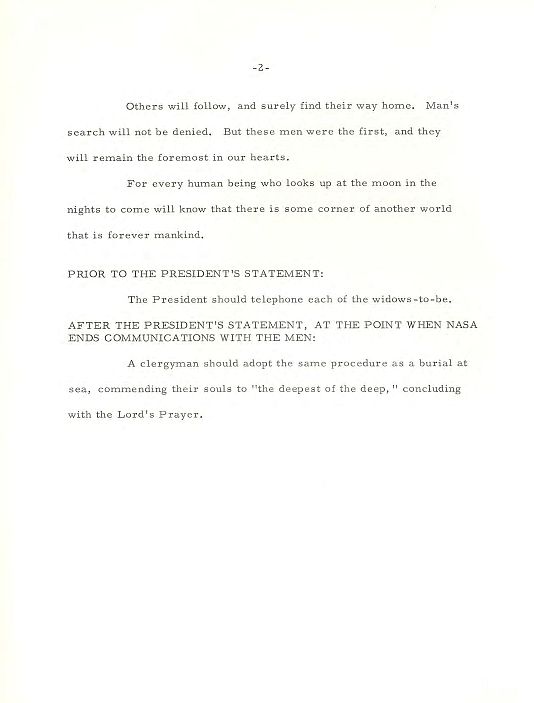US President Richard Nixon had a speech ready to go in the event that Apollo 11 ended in disaster.
The historic and successful Apollo 11 mission could have gone very differently.
As the world remembers mankind's first steps on the moon on the 50th anniversary of the mission, the incredulity of it is hard to overlook as it could have ended in disaster.
US President Richard Nixon's speechwriter William Safire had prepared a speech in the event that astronauts Neil Armstrong and Buzz Aldrin never made it back from the moon.
The speech that Nixon thankfully never had to give was discovered in the 1990s by author and journalist James Mann. The poignant words were hopeful in light of the catastrophic potential circumstances they sought to grasp.
The speech prepared for the eventuality that Armstrong and Aldrin were unable to return from the moon and included instructions that "the President should telephone each of the widows-to-be".
"In their exploration, they stirred the people of the world to feel as one; in their sacrifice, they bind more tightly the brotherhood of man," Safire wrote in the speech.
"Others will follow, and surely find their way home. Man's search will not be denied. But these men were the first, and they will remain the foremost in our hearts."
Frank Borman, NASA's liaison at the White House, had warned Safire a month before the mission to "be thinking of some alternative posture for the President in the event of mishaps on Apollo XI," Safire recounted in his book Before The Fall: An Inside View Of The Pre-Watergate White House.
The risk of failure included an explosion or being stranded on the moon. If stranded, they could have starved or committed suicide.
"I took Borman's caution to heart and prepared some appropriate remarks for the President," Safire wrote in his book.
Indeed, some NASA space missions have ended in catastrophe.
The three Apollo 1 astronauts died, including the first American to walk in space Ed White, after a fire broke out and spread in the pure oxygen environment during a simulation.
In 1986, people watched live as the space shuttle Challenger exploded just over a minute after take-off killing the seven-member crew.
The Columbia disaster also killed a seven-member crew in 2003 when the spacecraft exploded while re-entering the Earth's atmosphere. NASA halted all space programs for two years after the tragedy.
US President George W. Bush addressed the nation the same day in 2003 saying it was easy to "overlook the dangers of travel by rocket".
"The cause in which they died will continue. Mankind is led into the darkness beyond our world by the inspiration of discovery and the longing to understand. Our journey into space will go on."
Read the speech that Nixon's speechwriter prepared but did not have to deliver in the event of an Apollo 11 disaster below:













